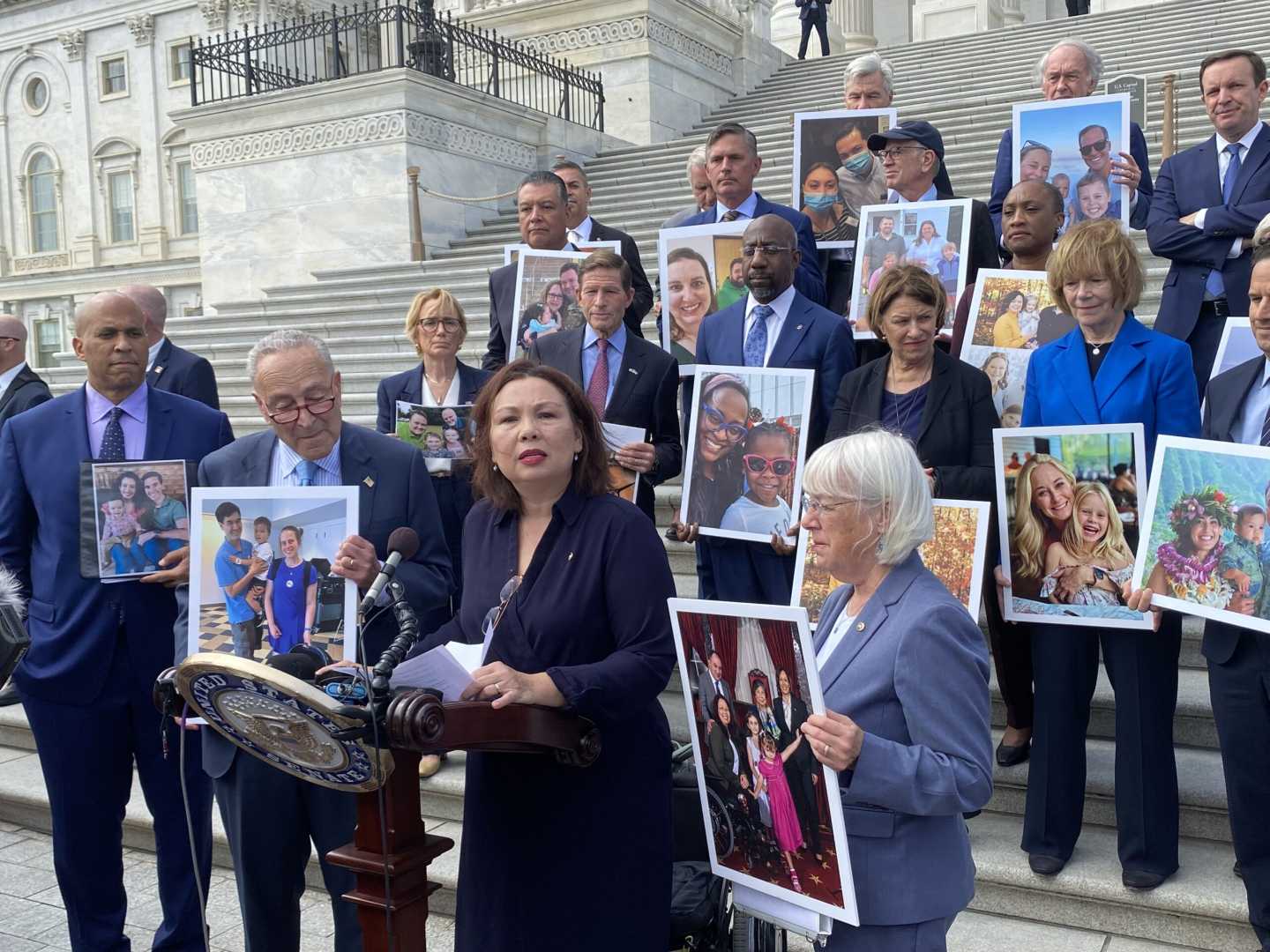Politics
Legislation Aims to Expand IVF Access for Military Families

WASHINGTON, D.C. — Congressional Democrats are reviving efforts to increase access to in vitro fertilization (IVF) for military service members, introducing a bill that would mandate the Department of Defense’s health care program to provide funding for IVF treatments by April 1, 2025.
The legislation is spearheaded by Democratic Sen. Tammy Duckworth and Rep. Sara Jacobs, both emphasizing that current Pentagon policies restrict service members from receiving necessary fertility treatments comparable to those afforded to Congress members. They argue that requiring service members to prove their infertility is directly connected to their military service poses a significant barrier.
“This could be life-changing,” Jacobs said in an exclusive interview with ABC News. “We know many military families are already struggling financially, and significant fertility challenges should not force them to choose between serving our country and starting a family.”
Jacobs and Duckworth have reported that some service members feel compelled to abandon their military careers due to the lack of IVF coverage under TRICARE, the military’s health care program. “For too many service members, the lack of TRICARE coverage of IVF has left them with few options: prove their infertility is service-related, incur tens of thousands of dollars in out-of-pocket expenses, forgo having children, or leave the military. This is wrong,” Jacobs stated.
The proposed legislation also aims to create parity between military families and federal employees, such as members of Congress, who already have access to comprehensive infertility treatment plans. “It makes no sense that federal workers and congress members can access these treatments while military families remain unprotected,” Jacobs added.
This initiative marks the second attempt by Jacobs and Duckworth to pass similar provisions since previous efforts were thwarted in the National Defense Authorization Act (NDAA) last year, despite passing through the House Armed Services Committee. Their efforts face skepticism, with Republican Sen. James Lankford having opposed previous IVF funding proposals over concerns about cost and implications for gene editing.
Duckworth, an Iraq War veteran who has personally experienced IVF, expressed frustration over past setbacks and remains hopeful for bipartisan support. “Republicans can now help make good on promises made on the campaign trail regarding IVF. It’s an opportunity to demonstrate commitment to those who serve,” she declared.
While no Republican has signed on as a co-sponsor yet, they are highlighting recent supportive remarks from former President Donald Trump regarding IVF accessibility as a potential incentive for bipartisan unity.
As of now, it remains uncertain whether the new effort will gain sufficient traction to advance as standalone legislation or influence the upcoming NDAA.












